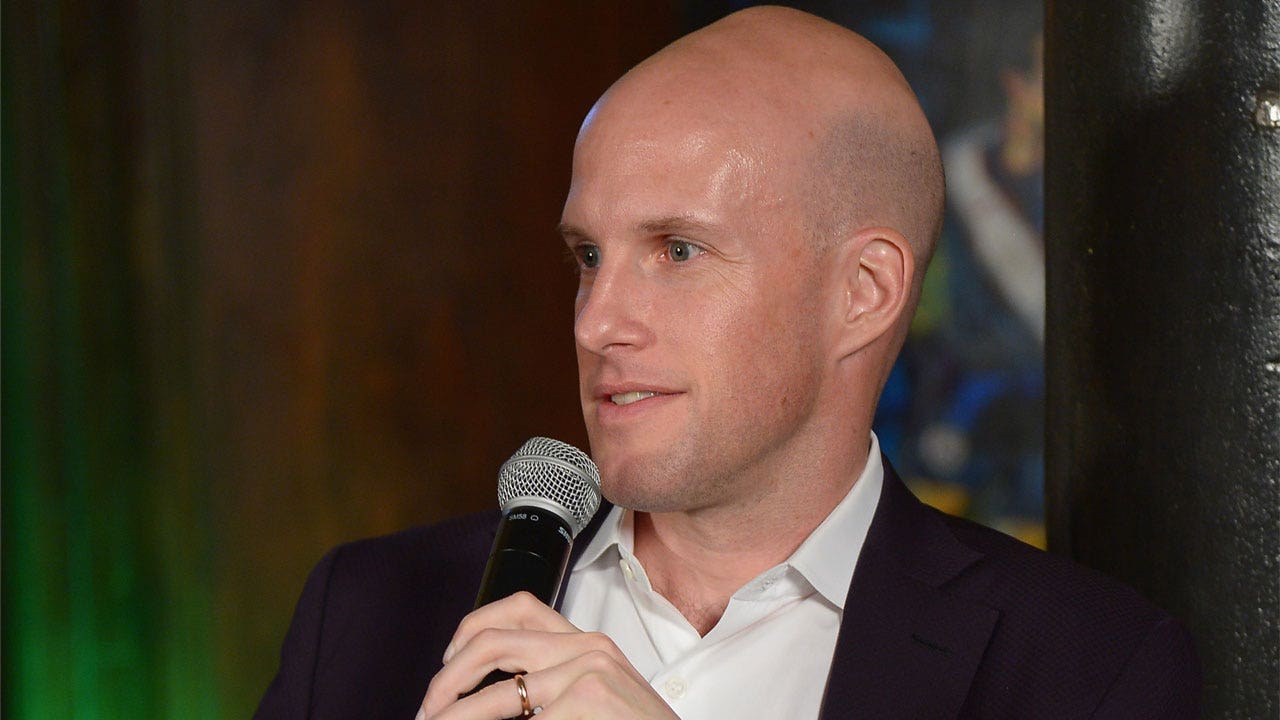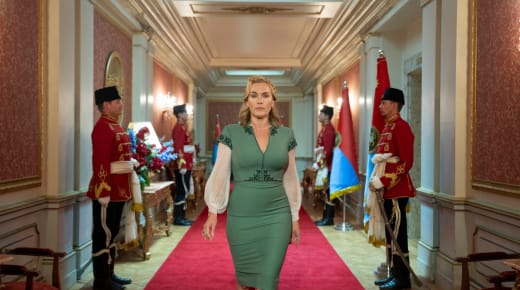Among the most frequent questions I was asked by local Saudis working at the Red Sea Film Festival earlier this week was “Is this your first time here?” followed by “How have you liked it so far?”
These weren’t forced marketing queries they’d been instructed to ask, or at least didn’t seem to be. With many of the festival’s international guests visiting not just the festival, but Saudi Arabia for the very first time, there was an authentic curiosity about their impressions alongside an eagerness that people were enjoying their experience.
And certainly, for myself and the vast majority of people I met there, they genuinely were.
Set in the coastal city of Jeddah and now into its second year, the Red Sea Film Festival exudes the calm and confidence of an event where purse strings — so often the crucial factor for film gatherings (and we’ve seen several recently forced to close due to funding issues) — seem to be of little concern. The deep pockets of Saudi Arabia have helped to not just finance the biggest industry marketing campaign I’ve ever seen (posters and promos appeared to have followed me across all major A-list festival this year), but have backed this up with an event that justified the promotion.
I genuinely laughed at the sheer number — and somewhat eclectic nature — of names on the opening night for the screening of Brit rom-com What’s Love Got to Do With It? Sharon Stone, Guy Ritchie, Shah Rukh Khan, Oliver Stone, Luca Guadagnino, Priyanka Chopra, Henry Golding, Michelle Rodriguez, Nadine Labaki, Freida Pinto, Melanie Laurent, Lucy Hale and Scott Eastwood were just some of the stars led down the red carpet at the Ritz-Carlton Jeddah, the festival’s vast, palatial and exceptionally bling base of operations. Were they paid to be there? Probably (a couple of sources told me that some names had commanded seven-figure sums purely for an appearance). There were much more to come.
At the party in the hotel’s grounds later, many guests — including myself — were surprised to discover that the singer performing the lengthy set of Bruno Mars covers was indeed Bruno Mars himself.
But it wasn’t all about the red carpet and photo ops (which had been one of the criticisms last year for the festival’s inaugural edition). Alongside screenings, the next few days would see talks, press conferences, masterclasses, panel discussions, with — thankfully — a solid focus on the local industry. After all, for a country where cinemas simply didn’t exist five years ago, Saudi Arabia is now the one global box office that’s skyrocketing, and — with two-thirds the population under 35 years old — there’s a huge pool of creativity now trying to find its feet in the movie business and ensure that some of the success is, eventually, down to local productions.
While it may have launched with a Western title, the festival is closing with the world premiere of Valley Road, one of several Saudi features and numerous shorts. As cannot be said enough times, Saudi Arabia literally only overturned a 35-year cinema ban in late 2017. The progress in this one small sector alone is remarkable.
At a talk I attended with Spike Lee — who touched down in Jeddah on day two to introduce the first public Saudi screening of Malcolm X, 30 years after it made history by shooting in Mecca — the vast bulk of queries from the audience were from budding local filmmakers looking for advice. While many veteran festivalgoers in attendance may have rolled their eyes at this somewhat self-indulgent line of questioning, it certainly gave an indication of the eagerness of Saudi talent to take advantage of the occasion (to one, Lee simply answered that he was “not in any position to tell Saudis what to do — that’s something a white American would do”).
As someone who regularly attended the Dubai Film Festival until its sad closure in 2018, alongside earlier Gulf comers-and-goers in Abu Dhabi and Doha, there was a feeling of comforting similarity. From plush, five-star locations to the relative ease of navigating tickets and locations, the free lunches available to anyone with a pass, the regular shuttle buses transporting people around, and the evening events with ample buffets (but, of course, zero alcohol), this was a delightfully un-stressful festival to be a part of.
That’s what a whole load of petrodollars can afford you.
When the Dubai fest shut its doors four years ago, many local filmmakers I know expressed their concern about the disappearance of an event that had grown to become a major platform for Arab movies and where many projects had come to life through its various initiatives, networking sessions and funding programs. From what I saw, The Red Sea Film Festival appears to have swiftly filled that void, and judging by the buzz of activity in the industry-focused Red Sea Souk — not to mention $400,000 worth of prizes distributed to projects — will soon overtake Dubai’s impressive achievements.
Naturally, there are still some lessons to be learned. I heard that some of the premieres of Saudi films were poorly attended, something that may be due to the Ritz-Carlton’s somewhat foreboding and luxurious (not to mentioned heavily guarded) presence perhaps putting off locals who may have felt it wasn’t for them. From inside this hub, it didn’t quite have that community feel of other festivals. That said, free public screenings on the Corniche were packed (one on the opening night absolutely erupted when Shah Rukh Khan made an unexpected appearance). And of course, the Ritz-Carlton is simply a (not too shabby) temporary location while a more permanent festival center is built in Jeddah’s much more communal old town.
And yes, the absence of alcohol was something raised by many (especially those attending the various late-night parties or who slunk off to find somewhere to watch a World Cup game). But then, I found that there really is something to be said about waking up each morning clear-headed (I also found that the non-alcoholic malt beverages really aren’t worth bothering with). I’ve never felt fresher on my final morning at a festival catching a cab to the airport. Will drink become part of society — as it has in other Gulf states — in the years to come… Who knows? To be honest, for the festival, it doesn’t really matter.
Of course, there’s one giant elephant in the room, one that has been frequently addressed before but is still something not to be ignored (although some reports from the festival did just that). Allegations that the Red Sea Film Festival is part of a major — and majorly expensive — arts-washing campaign to launder the international reputation of a country with a terrible human rights record that crushes political dissent, was accused of murdering columnist Jamal Khashoggi and has led the bloody military intervention in Yemen are justified.
But at the same time, while the above may be true, it’s also impossible to ignore the tangible amount of optimism and excitement that a country shut off from the global community for so long isn’t now just welcoming major directors to its shores, but swiftly enabling its own homegrown filmmakers to share Saudi stories with the rest of the world. Film — like sport (sorry, Qatar) — is intrinsically linked to politics, especially from this region. But film also had the ability to challenge and change.
Speaking of change, many people I met said the societal change in Jeddah — and across much of Saudi — has been truly incredible to witness. I saw just as many women on the streets with their hair uncovered as I did with the hijab, something that apparently would have been unthinkable a few years ago. And at the festival opening night, while many guests did cover their arms (the instructions said to be “respectful”), there was also a sizable amount of flesh on display. It‘ll be interesting to see what happens if the festival succeeds in bringing the supermodel-soaked glitz and glam of an amfAR gala to a future edition (something that the royal treatment given to Sharon Stone surely helps pave the way for).
Whatever the future does have in store for the Red Sea Film Festival (and let’s hope it has a future and doesn’t become a flash-in-the-pan affair before billion-dollar interests shift elsewhere), the foundations it has already laid are truly impressive. It clearly has the star-pulling power to fill a red carpet (and the closing ceremony was equally as preposterous as the opening, with the likes of Jackie Chan, Antonio Banderas, Joel Kinnaman, Naomi Campbell, DJ Khaled and Mike Tyson in attendance), but is also already providing that all-important platform for filmmakers. And, for those visiting the country for the very first time, the immediate impressions were far away from what many were expecting, much to the happiness of the Saudis working at the hospitality desk.















































.jpg)










